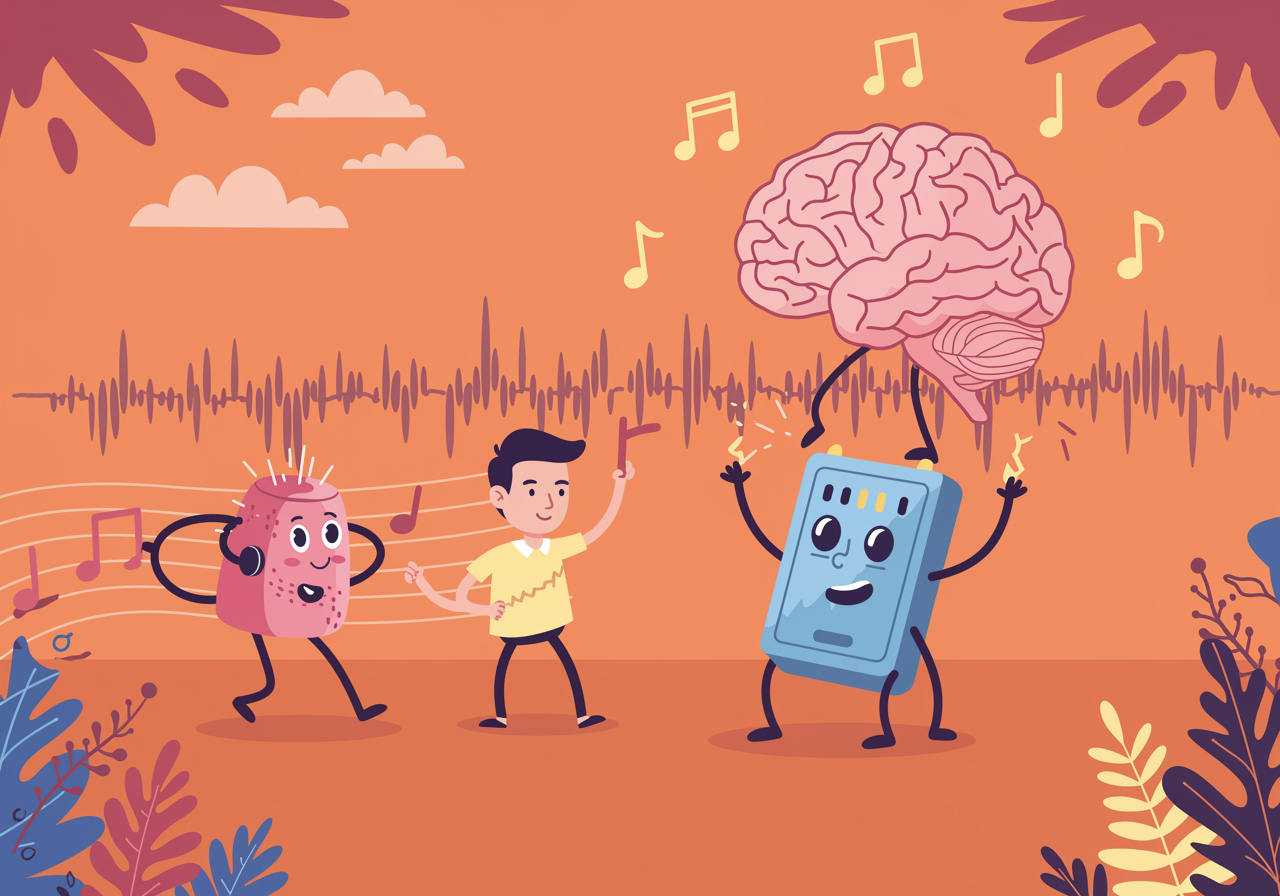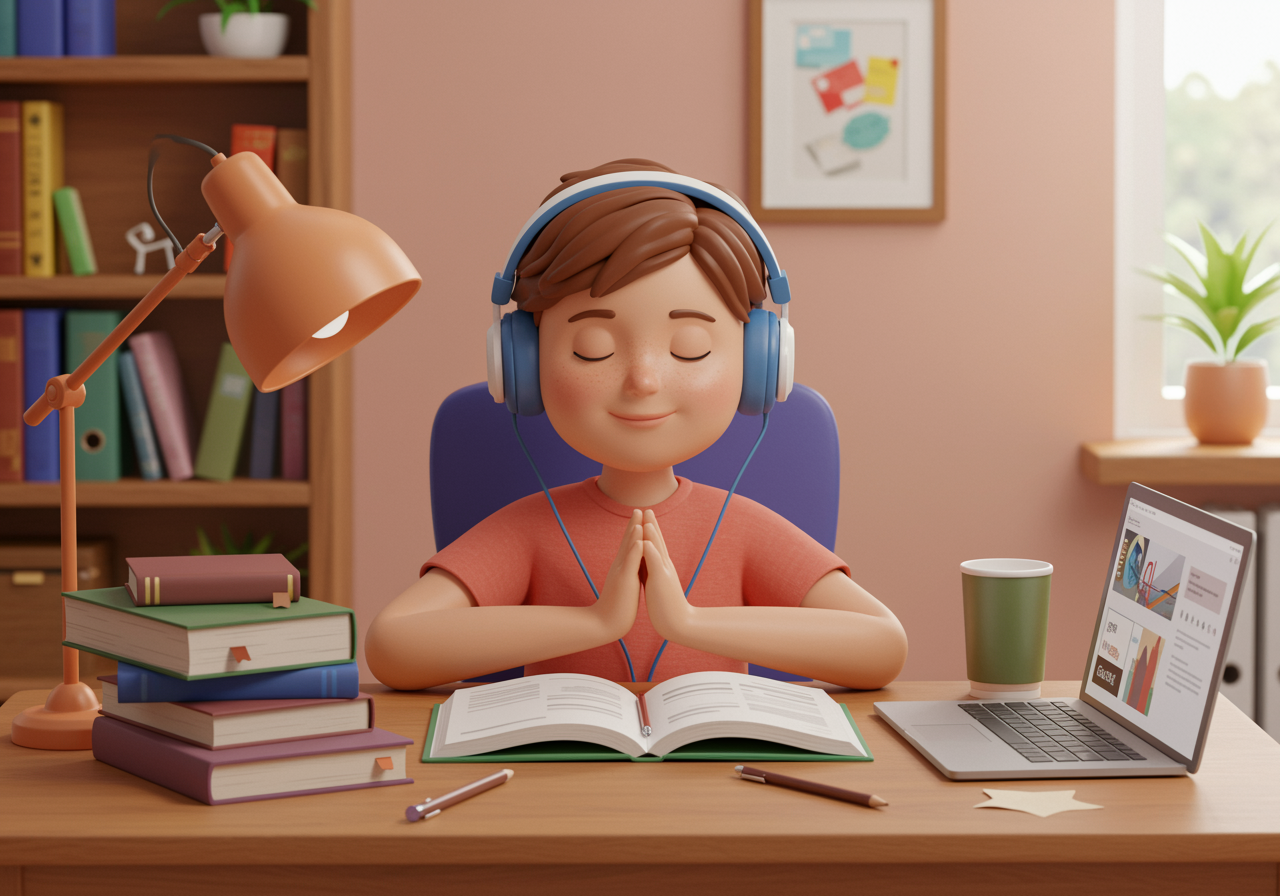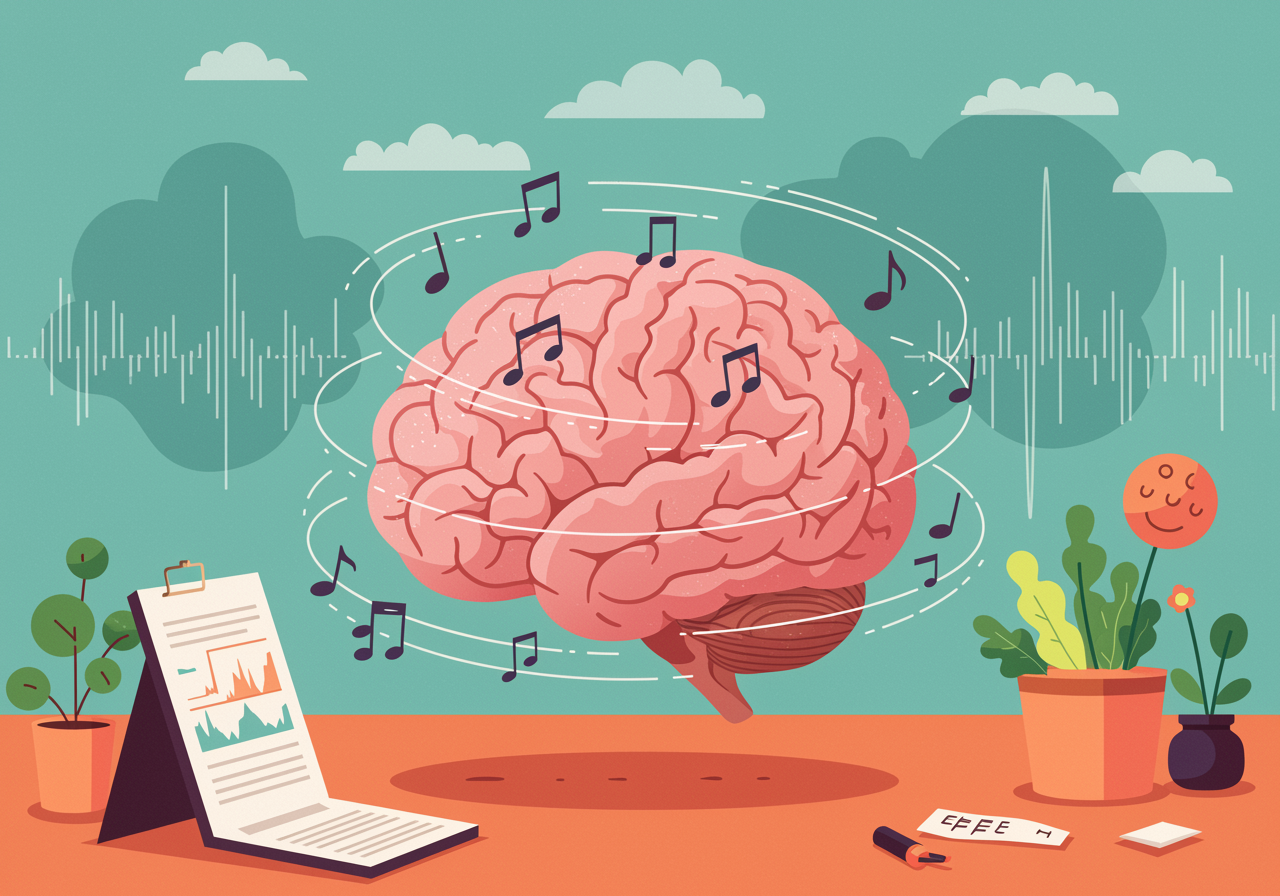Your Brain’s Ultimate Playlist: What Happens When Music Meets Mindful Breathing

Discover the mind-blowing science behind music, breathing, and your amazing brain!
Ever wonder why certain songs make you feel so calm when you breathe slowly along with them?
Overview
Think about the last time you heard your favorite song while taking deep breaths – maybe you felt instantly more relaxed or energized! When we combine music with special breathing techniques, something pretty amazing happens in our brains. Scientists have discovered that this combo creates a powerful team-up between different parts of our brain, kind of like when your favorite superhero duo joins forces. Understanding this connection helps us learn how to use music and breathing as tools for feeling better, focusing more, and even managing stress in our daily lives.

Understand in 30 Seconds
Get up to speed quickly
- Music = Brain Party: When you listen to music, multiple parts of your brain light up like a disco ball, releasing feel-good chemicals called dopamine.
- Breathing = Body Remote Control: Special breathing techniques act like a remote control for your nervous system, helping you feel calm or energized on command.
- Together = Super Power: Music plus intentional breathing creates a double boost effect, making both experiences more powerful than doing them separately.
- Science Says It Works: Research shows this combo can help with everything from test anxiety to better sleep, and even improved focus during homework.
Real Life Scenario
Situations you can relate to
Imagine you're about to take a big test and your heart is racing like you just ran a marathon. You put on your headphones, play some calm music, and start breathing in for 4 counts, holding for 4, then breathing out for 6. What's happening in your brain right now? The music is telling your brain to release those happy chemicals while also activating your memory centers. At the same time, that slow breathing is sending a message to your vagus nerve (think of it as your body's chill-out superhighway) that says 'Hey, everything's okay here!' Your brain gets both messages at once and responds by lowering stress hormones, slowing your heart rate, and helping you think more clearly. It's like having a personal brain DJ and a relaxation coach working together! Have you ever noticed how certain songs can instantly change your mood when you're breathing deeply?

Role Play
Spark a conversation with “what if” scenarios
What if you could train your brain like a musician trains their fingers?
- Role play: Take turns being a 'Brain Trainer' and 'Brain Student.' The trainer picks different types of music and breathing patterns while the student describes how each combo makes them feel.
What if you were a scientist studying how music affects alien brains?
- Role play: Create silly 'research experiments' where you test different music genres with various breathing techniques and record your 'alien subject's' reactions and mood changes.
What if you could design the perfect soundtrack for different daily activities?
- Role play: Work together to create playlists paired with breathing techniques for specific situations like 'Morning Energy Boost' or 'Homework Focus Mode.'
FAQs
Frequently asked questions people want to know
Does the type of music matter for this brain effect?
Yes! Slow, rhythmic music (like classical or chill electronic) works best with deep breathing, while upbeat music pairs well with energizing breath patterns.
How long does it take to feel the effects?
Most people notice changes within 2-3 minutes, but the full brain benefits can kick in after about 5-10 minutes of combined music and breathing.
Can this actually help with homework and studying?
Absolutely! The right music-breathing combo can improve focus, reduce test anxiety, and help your brain form stronger memories.
Examples in the Wild
See how this works day to day
- Professional athletes use music with controlled breathing before competitions to optimize their mental state and performance (Sports Psychology Research Institute)
- Hospitals are using music therapy combined with breathing exercises to help patients manage pain and anxiety without medication (American Music Therapy Association)
- Top tech companies like Google offer employees meditation rooms with specially curated playlists for stress relief (Harvard Business Review)
- NASA uses music and breathing techniques to help astronauts stay calm and focused during high-stress space missions (NASA Human Research Program)
In Summary
What you should know before you start
- Music activates multiple brain regions and releases feel-good chemicals, while controlled breathing regulates your nervous system
- When combined, music and special breathing create amplified effects that are more powerful than either technique alone
- This brain science explains why certain songs can instantly change your mood, especially when you breathe intentionally
- You can use this knowledge as a practical tool for managing stress, improving focus, and enhancing your daily experiences
Pro-tip for Parents
You got this!
If your teen seems skeptical about 'breathing exercises,' frame it as 'performance optimization' or 'brain hacking' instead. Let them choose the music and discover their own combinations rather than prescribing specific techniques. Remember, the goal is exploration and curiosity, not perfect execution. Some kids might prefer instrumental music while others connect better with lyrics – both work great as long as they're paying attention to their breathing rhythm.

Keep an Eye Out For
Find these examples in everyday life
- Notice when your child naturally syncs their breathing to music (like while doing homework or relaxing) – these are perfect conversation starters
- Watch for news about music therapy in hospitals, schools using mindfulness programs, or athletes talking about pre-game mental preparation
- Pay attention to how different playlists affect family car rides or homework time – these are real-time experiments happening in your home
Explore Beyond
Look up these related research topics
- How different instruments and frequencies affect brain waves and emotions
- The science behind why we get goosebumps from certain songs and how that connects to our nervous system
- How cultural background and personal experiences shape the way our brains respond to different types of music